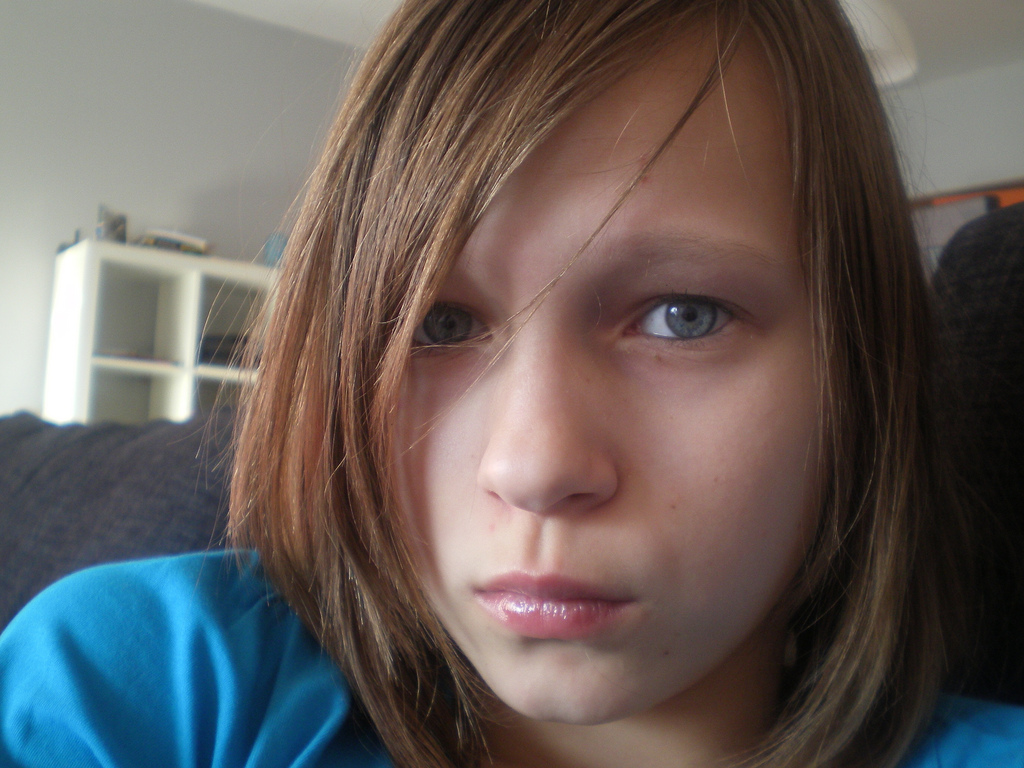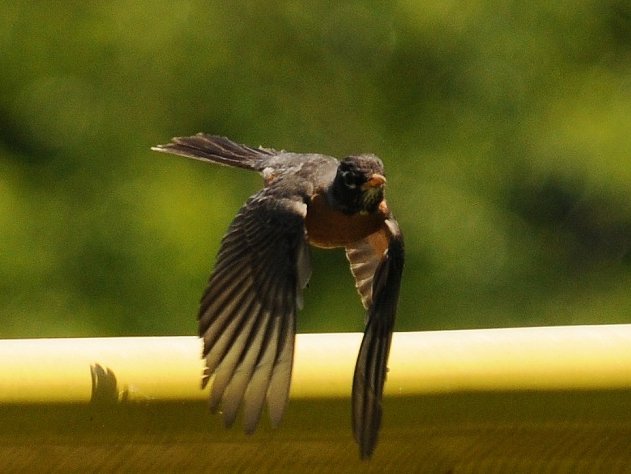 The granddaughters came to visit for the weekend. They’re hitting puberty hard. One of them suddenly has a throaty voice, long magenta hair that she wants to cut all off, just leave the bangs, and is currently grounded for injudicial actions. The other one’s glasses slide down her nose; she’s wearing white cut-off leggings with a turquoise blue tutu. They both sit curled on the couch reading, completely inert; and then for no reason, they rocket up and charge around. I walked with one of them to the mailbox up the hill; by the time we got there, I was out of breath; she sprinted the last twenty feet because she couldn’t help herself. They’re cheerful, surly, truly helpful, want to be left alone, need to tell you everything they know. I can’t tell if they’re happy or not, because they’re so intense.
The granddaughters came to visit for the weekend. They’re hitting puberty hard. One of them suddenly has a throaty voice, long magenta hair that she wants to cut all off, just leave the bangs, and is currently grounded for injudicial actions. The other one’s glasses slide down her nose; she’s wearing white cut-off leggings with a turquoise blue tutu. They both sit curled on the couch reading, completely inert; and then for no reason, they rocket up and charge around. I walked with one of them to the mailbox up the hill; by the time we got there, I was out of breath; she sprinted the last twenty feet because she couldn’t help herself. They’re cheerful, surly, truly helpful, want to be left alone, need to tell you everything they know. I can’t tell if they’re happy or not, because they’re so intense.
Meanwhile, outside is a Baltimore spring, all pink poufy cherry trees and golden green grass. The birds are bug-nuts and among the worst are robins. They’re rocketing around too and if you don’t duck, they’ll smack into you. They land with more energy than a landing needs; they bop around in the grass, stick out their chests, and act important. They sing like they want to be heard 40 acres away. I mentioned all this to a neuroscientist. “Oh yes,” he said. “They’re going through puberty. They do it once a year.” Isn’t puberty once a lifetime enough?
 Not for birds. Mother Nature wants babies and doesn’t care how she gets them. Her strategy for birds like robins is to have them breed only once a year, to have them be photosensitive, and to trigger breeding with the amount of light per day. When the days are long and the amount of light high, robins’ brains get flooded with hormones, their gonads grow, and the males start singing their heads off. The song centers in their brains are actually making new neurons; in fact, the song centers double in size. The females notice the songs, it’s full-on high school out there, and a little later, babies occur.
Not for birds. Mother Nature wants babies and doesn’t care how she gets them. Her strategy for birds like robins is to have them breed only once a year, to have them be photosensitive, and to trigger breeding with the amount of light per day. When the days are long and the amount of light high, robins’ brains get flooded with hormones, their gonads grow, and the males start singing their heads off. The song centers in their brains are actually making new neurons; in fact, the song centers double in size. The females notice the songs, it’s full-on high school out there, and a little later, babies occur.
Then summer ends, there’s less light per day, and the robins eventually stop responding to light. The hormones turn off, the gonads shrink and so do the song centers. The males don’t sing as much, and everybody returns quietly and calmly to childhood, hanging out together in flocks.
Until the days lengthen and puberty hits all over again; by now they can hardly tolerate each other and start acting out, then pairing off. Robins live a few years and as many as 11, so they go through puberty several times. Say a robin lives four years, that’s four puberties; at maybe 20 human years to one robin year, a robin could be 60 years old and still wearing blue tutus and racing around. How do their hearts stand it? Annual puberty or not, surely their bodies are aging, metabolisms are slowing, joints are seizing up?
I need answers, Science. Meanwhile I say Nature is one hard, ruthless mother.
___________
Photo credits: adolescent – els van eeckhaut; robin – badjoby
Neither a robin nor a scientist…I’d say Ms. Robin can distinguish between older rocker and hip young youngster.Anyone throwing research money at this? (I’d be looking at [listening to]sound variation.)
Dinahmow, I hadn’t thought of that. Ladies select. Surely they’d know and songs would be a good place to look for what they know. Not to mention sleepy old sperm. Let me see if I can find a neuroscientist somewhere.
This helps explain why I find robins so obnoxious. So the ones that start out their relentless, obnoxious doodot, doot, doot at 3 AM are the sex obsessed males. Maybe I should be more tolerant, but I wish they would just shut the f*** up. They remind me of the bird equivalent of Jersey Shore, and I sure don’t welcome them into my back yard at 3 AM.
That first paragraph deserves a Nobel all by itself.
And if you’re a Middle School Teacher, you deserve a Nobel all by yourself too.
I agree with Middle School Teacher about that first paragraph. Truth.